Who Will Lead the Democrats in the 2028 U.S. Presidential Election?
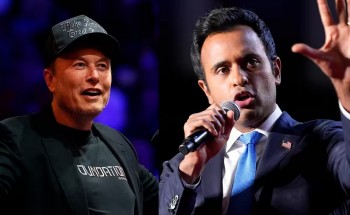 What is the DOGE, and Who Will Lead It? What is the DOGE, and Who Will Lead It? President-elect Donald Trump announced the creation of a Department of Government Efficiency (DOGE) to streamline federal operations. Trump promised to “dismantle government bureaucracy,” and this ... |
A Bitter Defeat: The Fallout of 2024
The 2024 presidential election delivered a stinging blow to the Democratic Party. Donald Trump, making a historic political comeback, successfully rallied his base, flipped key battleground states, and capitalized on voter discontent with Democratic leadership. Many viewed the election outcome as a referendum on the Democrats' inability to address economic anxieties, rising inflation, and polarized cultural issues.
For the Democratic Party, this defeat was more than a loss—it was a wake-up call. The 2024 campaign revealed fractures within the party, where centrists and progressives struggled to present a unified front. Now, as the party looks toward 2028, it must grapple with existential questions about its identity, priorities, and strategy.
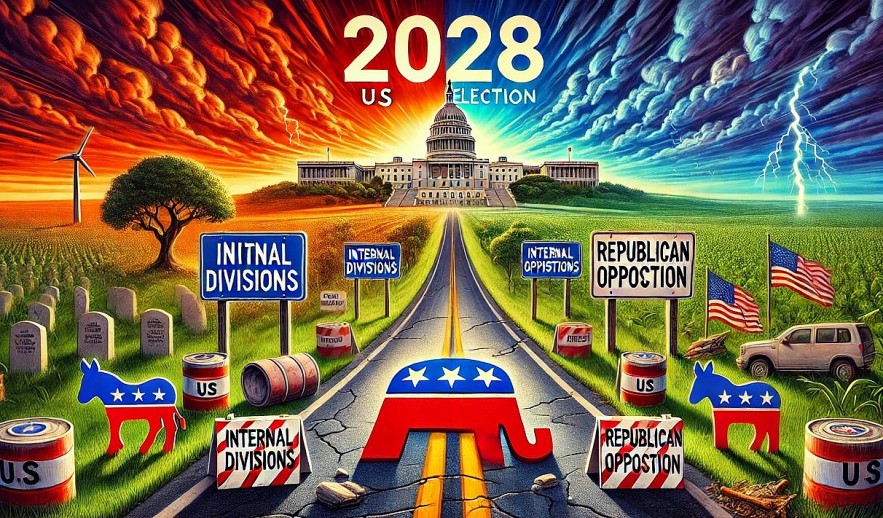 |
| The 2028 presidential election |
Rebuilding the Party: Lessons from 2024
To regain the trust of the American electorate, the Democratic Party must address the shortcomings that led to its defeat in 2024. Several key lessons are emerging as the party begins its journey toward 2028:
1. Bridging the Centrist-Progressive Divide
The ideological split between centrist and progressive factions was a recurring theme in 2024. While moderates sought to appeal to swing voters, progressives called for bold reforms on climate change, healthcare, and wealth inequality. The inability to reconcile these differences weakened the party’s messaging and alienated key voter groups.
For 2028, the Democrats must find a candidate capable of uniting these factions. A leader who can balance bold policy proposals with pragmatism will be essential to crafting a coherent and inspiring vision.
2. Addressing Economic Concerns
Economic issues played a decisive role in the 2024 election. Many Americans felt left behind by Democratic policies, citing inflation, wage stagnation, and fears of economic instability. Republicans capitalized on these fears by presenting themselves as the party of economic stability.
In 2028, the Democratic nominee must present a compelling economic agenda that prioritizes job creation, affordable housing, and income equality while addressing inflation concerns. The ability to connect with working-class voters, particularly in swing states, will be critical.
3. Winning Back Key Demographics
In 2024, the Democrats struggled to maintain their traditional advantage among younger voters, suburban women, and Hispanic communities. These groups were either less enthusiastic about the party's platform or swayed by Republican messaging.
To win in 2028, the Democrats must rebuild trust with these demographics by addressing their specific concerns, such as student debt, reproductive rights, and immigration reform.
 Who is Pete Hegseth, Secretary of Defense: Army Time, Personal Life, Career, and Net Worth Who is Pete Hegseth, Secretary of Defense: Army Time, Personal Life, Career, and Net Worth |
The Democratic Bench: Potential Leaders for 2028
The Democratic Party has a diverse array of leaders who could step forward to lead the party into the 2028 presidential election. Each potential candidate brings distinct qualities, experiences, and political ideologies. Here’s an expanded look at the most-discussed names:
1. Kamala Harris
Kamala Harris is an obvious contender given her current role as Vice President. She made history in 2020 as the first woman, the first Black person, and the first person of South Asian descent to hold the office. Harris’s resume includes experience as California’s Attorney General and U.S. Senator, where she championed criminal justice reform, consumer protection, and healthcare expansion.
-
Strengths:
- High name recognition and historic role.
- Extensive political and legal experience.
- Strong appeal to women, minorities, and progressive voters.
-
Challenges:
- Perceived struggles in defining her vice-presidential role.
- Criticisms regarding her prosecutorial record and her ability to resonate with swing-state voters.
- Polarizing figure for Republican voters, which could energize GOP opposition.
2. Pete Buttigieg
Pete Buttigieg, currently serving as Secretary of Transportation, is widely regarded as one of the brightest rising stars in the Democratic Party. As the former mayor of South Bend, Indiana, and the first openly gay Cabinet member, Buttigieg brings a fresh perspective to national politics. His 2020 presidential campaign showcased his eloquence, intellect, and ability to connect with younger voters.
-
Strengths:
- Exceptional communication skills and a forward-looking message.
- Strong appeal among younger, college-educated voters.
- Proven ability to perform well in debates and articulate complex policies clearly.
-
Challenges:
- Limited executive experience at the national level compared to governors or senators.
- Struggles to connect with Black and Latino voters, as evidenced during the 2020 primary.
- May face pushback from rural or conservative-leaning regions due to his progressive stances.
3. Gretchen Whitmer
Gretchen Whitmer, the Governor of Michigan, has proven her mettle in a battleground state critical to any Democratic victory. Known for her steady leadership during the COVID-19 pandemic and her slogan “Fix the Damn Roads,” Whitmer has focused on infrastructure, education, and healthcare.
-
Strengths:
- Proven ability to win statewide elections in Michigan, a key swing state.
- Strong track record of addressing issues important to suburban and working-class voters.
- Appeals to moderates while still holding progressive credentials on healthcare and reproductive rights.
-
Challenges:
- Limited national profile compared to other contenders.
- Could struggle to energize younger or more progressive voters.
- Needs to build name recognition and expand her appeal beyond the Midwest.
4. Alexandria Ocasio-Cortez
Congresswoman Alexandria Ocasio-Cortez, popularly known as AOC, is a polarizing but influential figure within the Democratic Party. Representing the party’s progressive wing, AOC has gained national attention for her bold ideas on wealth redistribution, climate change (via the Green New Deal), and healthcare reform.
-
Strengths:
- Charismatic and able to energize younger, more diverse voters.
- Represents a new generation of Democratic leadership.
- Strong social media presence and grassroots organizing capabilities.
-
Challenges:
- Limited legislative experience compared to governors or senators.
- Perceived as too far left for centrist and moderate voters.
- Her progressive policies may alienate swing-state and working-class voters.
5. Raphael Warnock
As the first Black Senator from Georgia and a senior pastor at Ebenezer Baptist Church (Dr. Martin Luther King Jr.’s former church), Raphael Warnock has a unique combination of political and moral authority. Warnock won two high-profile Senate races in Georgia, showcasing his ability to mobilize voters in a historically Republican state.
-
Strengths:
- Strong appeal to Black voters and religious communities.
- Proven ability to win in swing states like Georgia.
- Focus on voting rights and social justice resonates with key Democratic values.
-
Challenges:
- Limited national recognition compared to other candidates.
- May need to broaden his policy focus beyond voting rights and social equity.
- As a pastor, may face scrutiny over the intersection of his religious leadership and political career.
6. Gavin Newsom
The Governor of California, Gavin Newsom, is often seen as a polished and ambitious leader. Newsom gained national attention during the pandemic for his handling of COVID-19 and has been a staunch advocate for progressive causes like climate action, gun control, and LGBTQ+ rights. His high-profile governance of the nation’s most populous state gives him extensive executive experience.
-
Strengths:
- Long track record of implementing progressive policies in California.
- Skilled at fundraising and building a large political organization.
- Strong media presence and ability to articulate Democratic ideals.
-
Challenges:
- California’s liberal policies may not resonate with voters in swing states.
- Seen by some as overly ambitious or polarizing.
- Critics may use California’s issues, such as homelessness and high taxes, to undermine his record.
7. Cory Booker
The Senator from New Jersey, Cory Booker, has been a consistent voice for unity and social justice within the Democratic Party. His focus on criminal justice reform, affordable housing, and economic equity aligns with core Democratic values. Booker’s oratory skills and optimistic vision make him a compelling figure.
-
Strengths:
- Charismatic and inspiring speaker with a hopeful message.
- Strong appeal to Black voters and urban communities.
- Extensive experience in legislative and executive roles.
-
Challenges:
- Limited momentum in his 2020 presidential campaign raised questions about his national appeal.
- Needs to establish a more distinct policy platform to stand out among contenders.
8. Jared Polis
As the Governor of Colorado and the first openly gay man elected as governor in U.S. history, Jared Polis represents a blend of progressive values and pragmatic governance. Polis’s policies on healthcare, education, and renewable energy have earned him praise.
-
Strengths:
- Proven ability to appeal to both progressives and moderates.
- Strong record on healthcare reform and economic innovation.
- Governs a purple state, demonstrating bipartisan appeal.
-
Challenges:
- Lower national profile compared to other contenders.
- Needs to expand his appeal beyond Colorado and Western states.
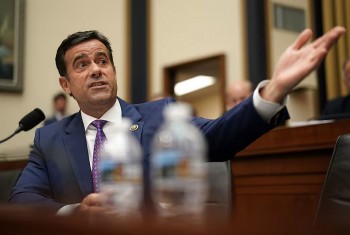 Who is John Ratcliffe (CIA Director): Biography, Personal Life, Career, and Net Worth Who is John Ratcliffe (CIA Director): Biography, Personal Life, Career, and Net Worth |
Strategic Priorities for 2028
1. Rebuilding Trust in Institutions
Widespread mistrust of traditional institutions and the government played a role in Donald Trump's victory in 2024. Democrats must work to rebuild this trust by demonstrating competence, transparency, and results-oriented governance at all levels.
2. Expanding the Electoral Map
The Democrats cannot rely solely on traditional strongholds like California and New York. To win in 2028, the party must invest heavily in battleground states such as Michigan, Pennsylvania, Wisconsin, and Georgia. Efforts to expand outreach in states like Texas and Arizona could also pay dividends.
3. Embracing Grassroots Movements
Grassroots activism played a pivotal role in Democratic victories in 2018 and 2020. Reinvigorating these networks will be essential for building enthusiasm and mobilizing voters in 2028.
4. Tackling Disinformation
The role of social media and disinformation in shaping public opinion cannot be ignored. Democrats must develop robust strategies to counter false narratives and communicate their message effectively to the electorate.
Challenges on the Road to 2028
While the Democratic Party has the potential to reclaim the presidency, it faces several challenges:
Republican Momentum: After a successful 2024 campaign, the Republican Party will likely be united and energized heading into 2028.
Economic Uncertainty: The state of the economy will play a critical role in shaping voter sentiment.
Internal Divisions: Resolving ideological tensions within the party will be vital to presenting a unified front.
Conclusion: A Defining Moment for the Democrats
The 2028 presidential election represents a pivotal moment for the Democratic Party. After the bitter defeat of 2024, the party faces the dual challenge of rebuilding trust with the American electorate and presenting a compelling vision for the future. Whether it is Kamala Harris, Pete Buttigieg, Gretchen Whitmer, or another rising star, the Democrats must select a leader who can unite their diverse coalition and navigate the complex challenges of modern politics.
The road to 2028 will not be easy, but with strategic planning, bold leadership, and a focus on the issues that matter most to voters, the Democratic Party has the opportunity to reclaim its place as a transformative force in American politics.
FAQs
1. Why is the 2028 election important for the Democratic Party?
The 2028 election is critical because it offers the Democratic Party an opportunity to rebuild after the bitter defeat in 2024. The outcome will determine whether Democrats can reclaim the presidency, address key national issues like climate change and economic inequality, and reaffirm their relevance in a politically polarized nation.
2. What were the key reasons for the Democrats' loss in the 2024 election?
Several factors contributed to the Democratic loss in 2024, including:
Rising inflation and economic dissatisfaction among voters.
Perceived disconnect between Democratic leadership and working-class concerns.
Internal divisions between centrist and progressive factions.
Effective Republican messaging, particularly on cultural issues and economic stability.
3. What qualities will the ideal Democratic candidate for 2028 need to have?
The ideal Democratic candidate will need to:
Unite the party’s diverse factions (centrists and progressives).
Appeal to key demographics, including young voters, women, minorities, and working-class Americans.
Present a compelling vision for addressing pressing issues like the economy, climate change, healthcare, and reproductive rights.
Demonstrate electability in critical battleground states.
4. Which states will be key battlegrounds in the 2028 election?
Traditional battleground states like Michigan, Pennsylvania, Wisconsin, Georgia, and Arizona will remain critical. The Democrats may also focus on expanding their reach in states like Texas and North Carolina, which are showing signs of becoming more competitive.
5. Who are the leading contenders for the Democratic nomination in 2028?
The leading contenders include:
Kamala Harris: Current Vice President with historic credentials.
Pete Buttigieg: Secretary of Transportation and a rising star in the party.
Gretchen Whitmer: Michigan Governor with appeal in the Midwest.
Alexandria Ocasio-Cortez: Progressive congresswoman with strong grassroots support.
Raphael Warnock: Georgia Senator with a focus on social justice and voting rights.
Gavin Newsom: Governor of California with extensive executive experience.
Other notable names include Cory Booker, Jared Polis, and Katie Porter.
6. What challenges will the Democrats face in 2028?
The Democrats will face several challenges, including:
Overcoming internal divisions between moderate and progressive factions.
Rebuilding trust with working-class voters and key demographic groups.
Countering a unified and energized Republican Party.
Addressing economic concerns like inflation and wage stagnation.
Combatting disinformation and effectively communicating their platform.
7. Could a progressive candidate like Alexandria Ocasio-Cortez win the nomination?
While Alexandria Ocasio-Cortez has significant support among younger and progressive voters, her candidacy could face resistance from moderate and older Democrats. Her ability to expand her appeal beyond the party's left wing and connect with swing-state voters would be critical to her success in a general election.
8. Is it possible for Joe Biden to run again in 2028?
It is highly unlikely. Joe Biden would be 85 years old by the 2028 election, making it improbable for him to seek another term. His decision not to run in 2024 or a loss in that election would also solidify the need for new leadership within the Democratic Party.
9. How will Donald Trump’s presidency impact the Democrats’ strategy for 2028?
If Donald Trump wins in 2024, his policies and governance will shape the Democratic strategy. Democrats will likely focus on contrasting their platform with Trump’s presidency, emphasizing areas where his administration falls short, such as climate action, healthcare reform, and inclusivity. They will also need to counter his populist messaging to win back disaffected voters.
10. When will the Democratic primaries for 2028 begin?
The Democratic primaries will likely begin in early 2028, with key events like the Iowa caucuses and New Hampshire primaries setting the tone for the race. Candidates are expected to announce their campaigns as early as late 2026 or early 2027.
11. Can the Democrats win without uniting progressives and moderates?
It will be extremely difficult for the Democrats to win the presidency without uniting progressives and moderates. The party’s strength lies in its diverse coalition, and any significant rift between these factions could weaken voter turnout and reduce enthusiasm.
12. How will the economy influence the Democratic candidate's platform?
The economy will likely be a central focus for the Democratic platform. Key issues will include:
Tackling inflation and rising costs of living.
Promoting job creation and wage growth.
Advocating for affordable housing, healthcare, and education.
Addressing wealth inequality and corporate accountability.
 Who is Lee Zeldin (Trump's Environment Chief) - Military Service, Personal Life, and Career Who is Lee Zeldin (Trump's Environment Chief) - Military Service, Personal Life, and Career President-elect Donald Trump has tapped former Rep. Lee Zeldin to lead the Environmental Protection Agency. This article delves into Zeldin’s background, career, personal life, and ... |
 Who is Mike Waltz: A Green Beret to National Security Advisor Who is Mike Waltz: A Green Beret to National Security Advisor This article provides an in-depth look at Mike Waltz’s personal life, army time, career, and potential impact as National Security Advisor in Trump's new cabinet. |
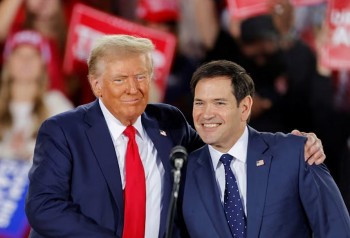 Who is Marco Rubio (Secretary of State): Biography, Personal Life, Career, And Net Worth Who is Marco Rubio (Secretary of State): Biography, Personal Life, Career, And Net Worth Senator Marco Rubio of Florida will hold a position in Trump 2.0's new Cabinet, perhaps as Secretary of State. Rubio's biography, personal life, family, political ... |
 Who is Howard Lutnick - From Orphan to Billionaire, US Treasury Secretary Who is Howard Lutnick - From Orphan to Billionaire, US Treasury Secretary From an orphaned teen overcoming tragedy to a self-made billionaire and CEO of Cantor Fitzgerald, Howard Lutnick’s journey is a story of resilience and triumph. ... |
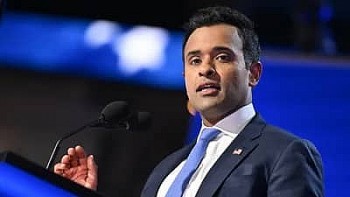 Who is Vivek Ramaswamy - Top Contender for Secretary of Commerce Who is Vivek Ramaswamy - Top Contender for Secretary of Commerce We explores Vivek Ramaswamy's journey from biotech executive to a rising star in conservative politics and Top Contender for Secretary of Commerce (Trump New Cabinet). |
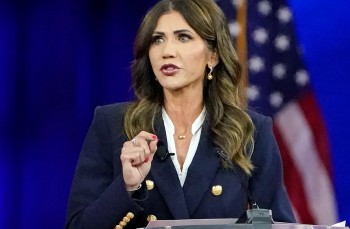 Who is Kristi Noem (Homeland Security Secretary): Personal Life, Career, and Net Worth Who is Kristi Noem (Homeland Security Secretary): Personal Life, Career, and Net Worth This article explores South Dakota Gov. Kristi Noem's personal life, career, achievements, and her potential role in Trump’s new Cabinet as Homeland Security Secretary. |
























